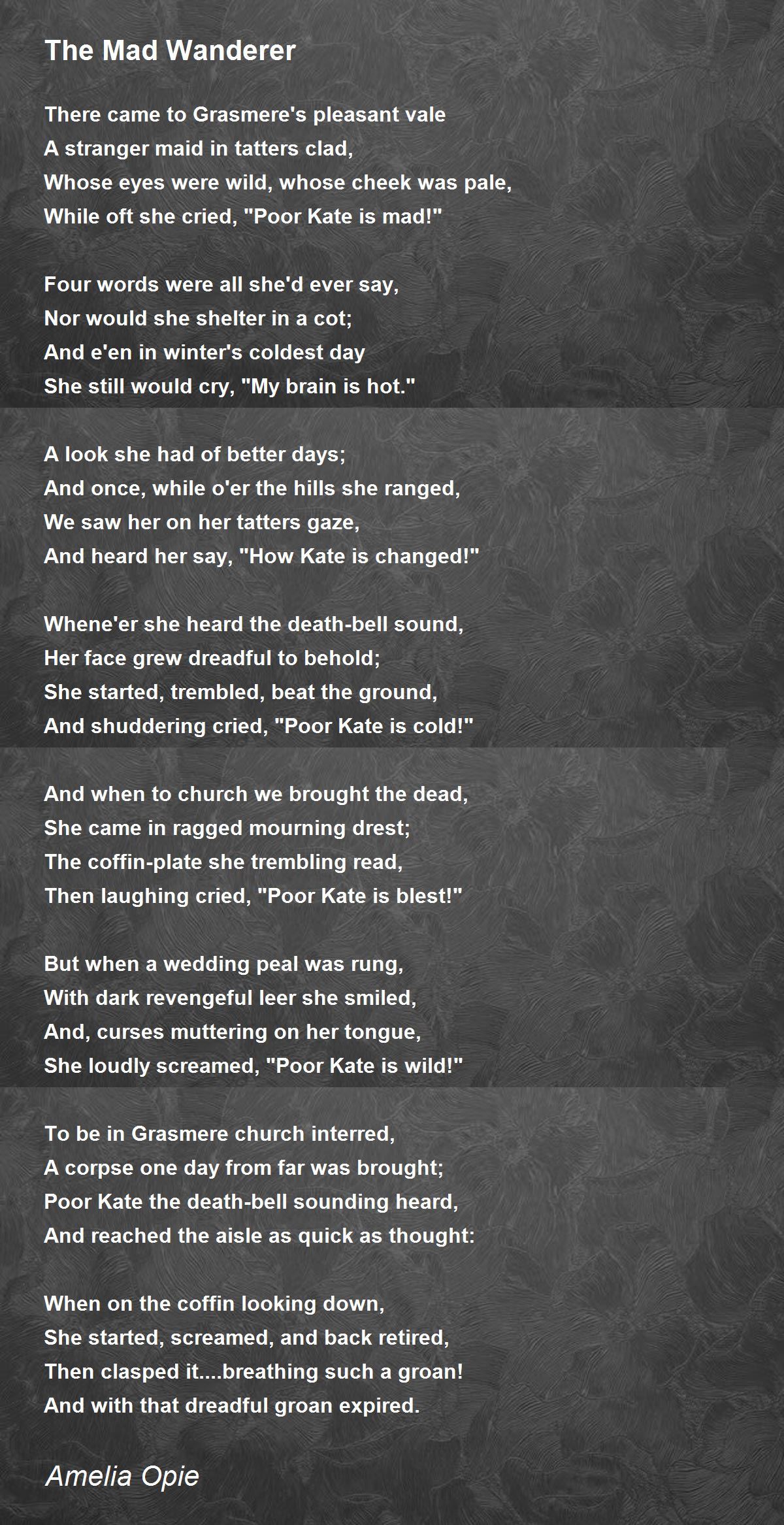

Secondly, the past comes into account through looking at the Anglo-Saxon warrior time and therefore exploring the depiction of the past.

Therefore, the paper will look at five different aspects starting with the formal aspect and the problem of the speakers. Although he gains wisdom and faith in the end, the focus lies on the moaning for a past he has to dismiss.

Coming from a warrior culture, the wanderer suffers the disappearance of his home culture which leads to his wandering between the two cultures in a nowhere land. This implies a great change for society and culture leading into trouble with identity with the people. “Anglo-Saxon Narrative Poetry Project.” AngloSaxon Narrative Poetry Project The Wanderer Comments, /the-wanderer/.The Wanderer is an Old English elegy which is situated in the transition period between the Anglo-Saxon society and the new emerged Christian one. The work as a whole continues a thematic scheme of using theology to explain one’s life, just as Guthlac and Juliana, other Exeter book manuscripts, have done. This piece is centered around common themes in literature, being based in Christian philosophy, with the human suffering on earth in order to achieve greater rewards in Heaven. The wanderer poses the question about his lot in life, and further, how the living will benefit, not from this life, but in the afterlife. The poet of this piece soulfully explores the futility of the future as it stands, because the events of the past are unchangeable, and the future is unforeseeable. On this wheel, a man is perched on the spokes as it turns and it is only by the will of fate that a man succeeds or fails. The role of Fortune and her wheel are indicated in such notable works as Boethius’ “ Consolation of Philosophy” and so depicts the views of that time in that the future is determined by fortune, on whose wheel every man is placed. Here family is loaned-Īnd this whole foundation of the earth wastes away!” The work of fortune changes the world under the heavens. “All is misery-fraught in the realm of earth, The poet’s mention of the wheel of fate indicates that he believes his lot in life is predetermined and as such, he has no control over his own station. He speaks fondly of a position he had in which he experienced the love of others. The sorrow of the poet is clear as he wanders the lands as a shell of the man he once was. His depressive state is threaded through the work’s solemn tone and melancholic phrases and mourning. The poem is a reflection of a man with neither home nor friends. However, this piece does have a certain charm in inciting the nostalgia of times passed as well as the uncertainty of the future. This is not altogether a novel idea as each generation, even now, tends to look kindly on the past. The richness of the ruling class, as well as the frequent skirmishes over land and power, led to the turmoil of the populace and the fondness for the past. This piece highlights the splendor of the times, as well as the rampant destruction in which the Anglo-Saxon lands were formed. Until the ancient work of giants stood empty, devoid of the revelry of their citizens,” (lines 85-87).

The wanderer feels cursed to remember the power, the greatness, he once witnessed, and instead must face the harsh realities of the world alone, stating, “ so the Shaper of Men has laid this middle-earth to waste The love -lorn poet is desperate for the life he once had, in rich halls, in a prosperous land with his lord. This piece bewails the fate (or wyrd) of the poet, forced to wander the earth alone. The Wanderer is a poetic piece found in the Exeter book, located on folio 76 verso-77 recto. The Wanderer, Exeter, Exeter Cathedral Library, MS 3501 fol.


 0 kommentar(er)
0 kommentar(er)
